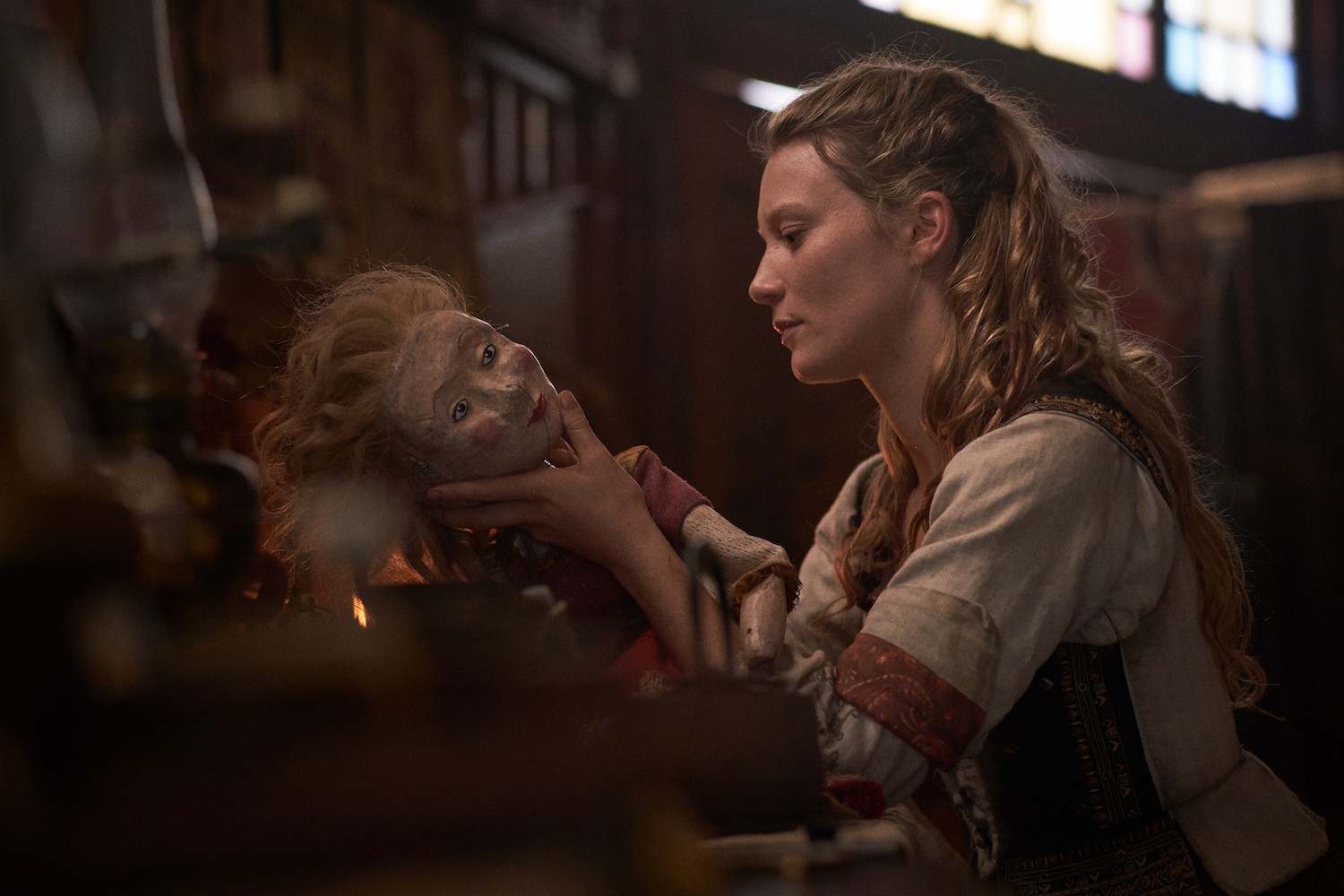Judy & Punch
Judy & Punch, 2019, 3 stars
Dark comedy with a Punch

Mia Wasikowski stars as Judy in Judy & Punch. (image copyright Samuel Goldwyn Films / Film Victoria / Screen Australia)
From The Orlando Weekly and The Detroit Metro Times, June 3, 2020
Punch and Judy puppet shows have been a staple of British entertainment for nearly four centuries. Imported from Italy in the 17th century and inspired by the commedia dell’arte, they have amused and shocked generations of English children with their slapstick comedy and marionette mischief.
Now, in her feature debut, Australian writer-director Mirrah Foulkes has cleverly reimagined the show’s origins. Heretofore better known as a television actress, Foulkes, with Judy & Punch, posits a real-life Mr. Punch and his wife, Judy, as accomplished puppeteers. But while Punch pulls the strings in the two-person act, he pulls no punches in their relationship, resorting to domestic violence fueled by alcoholism. And consistent with the Punch and Judy tradition, he even harasses his dog and hates his baby.
As Punch, Damon Herriman brilliantly balances comedy and tragedy. (Quirky, evil guys must come easy for him, as he recently played Charles Manson in both Once Upon a Time in Hollywood and the Netflix series Mindhunter.) And as Judy, Mia Wasikowski is wonderful except during a sandwiched stretch in the second act when she is adopted by a group of outcasts. But that subplot’s failings have more to do with a slightly unfocused script than Wasikowski. (Oh, and watch for nice supporting turns from Lucy Velik as Punch’s assistant and Benedict Hardie as the town constable.)
Despite its brutality, Judy & Punch is, at times, a riotous comedy, which is remarkable considering the dark subjects and graphic violence. Indeed, I can’t remember the last time I laughed at infanticide since, well, a Punch and Judy show. If that provokes offense, Foulkes’ film might not be your bag. But if you’re intrigued so far, read on.
The couple reside in a strange community seemingly born of a Grimm fairy tale, with little sense of place or time. Named Seaside, the village is described as “somewhere in the countryside, nowhere near the sea.” And though it’s probably in 17th century England, to match the real Punch and Judy origins, the accents range from modern British to Cockney to Irish. Even the music is anachronistic, featuring everything from Leonard Cohen to Johann Sebastian Bach. Yet this is one Baroque film that doesn’t need fixing.
The villagers need fixing, though, as their attitudes are as landlocked as their town. Titillated by stoning to death suspected witches, they are understatedly described as “prone to superstition more and more by the day.” And therein lies the movie’s social commentary, which is noticeable yet rarely overbearing. Still, some critics, perhaps overeager to emphasize the zeitgeist – a term that is becoming increasingly tiring – are suggesting the film exists almost exclusively to reflect the Me Too movement. While there is no denying the female-centric focus and title, Judy & Punch succeeds more because of its Terry Gilliamesque weirdness than any message Foulkes might be sending.
There are even some who might see the film as an all-out attack on the Punch and Judy tradition itself. Though that interpretation is understandable, I would advise you to not be a puppet of the politically correct. Instead, watch the film and make up your own mind. I’ll be interested in your opinion – no strings attached.
© 2020 Euclid Media / MeierMovies, LLC